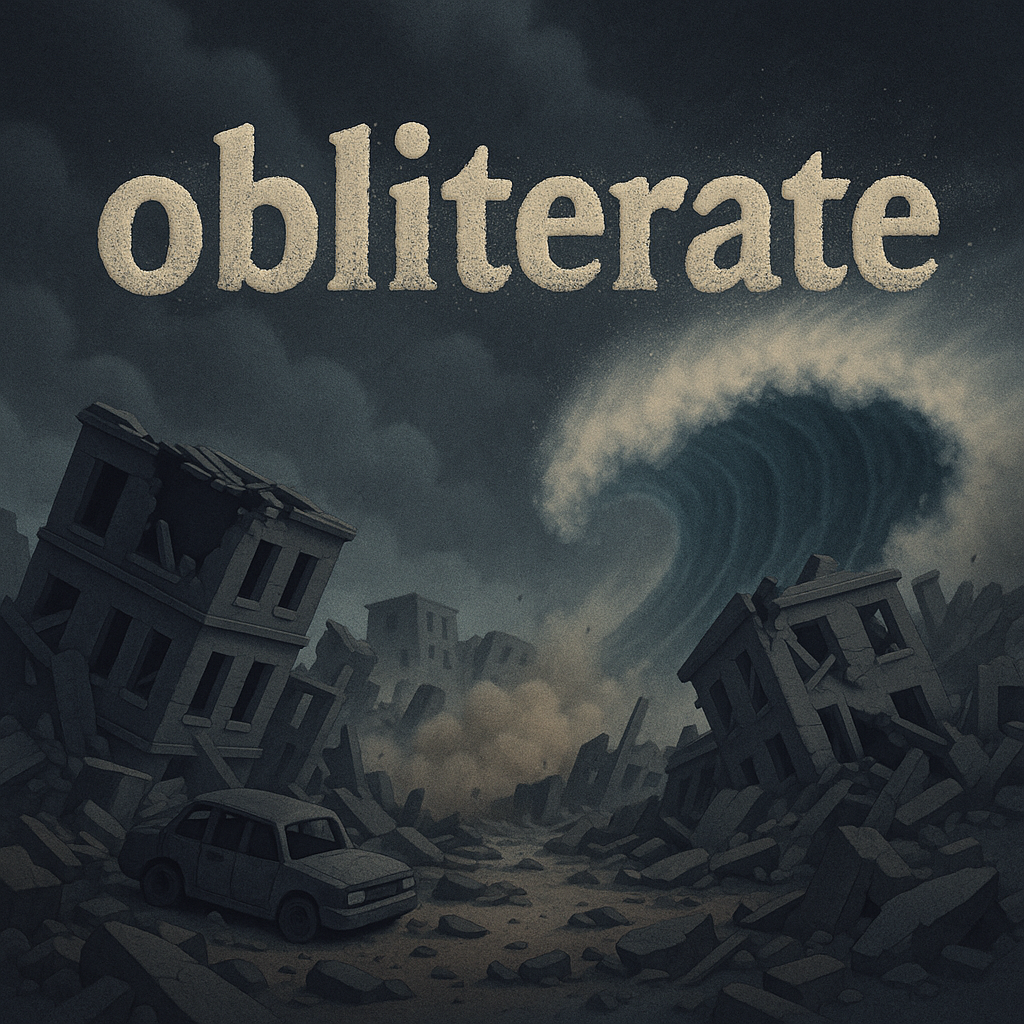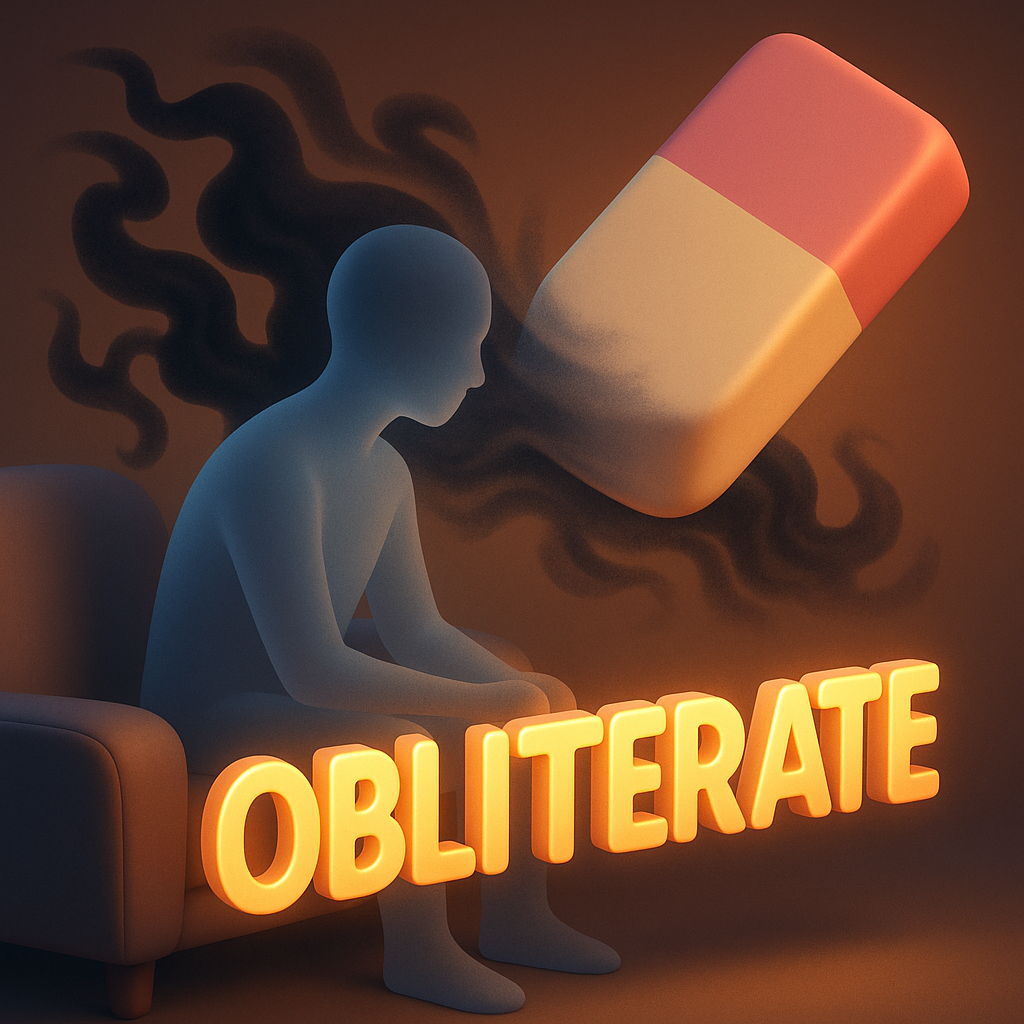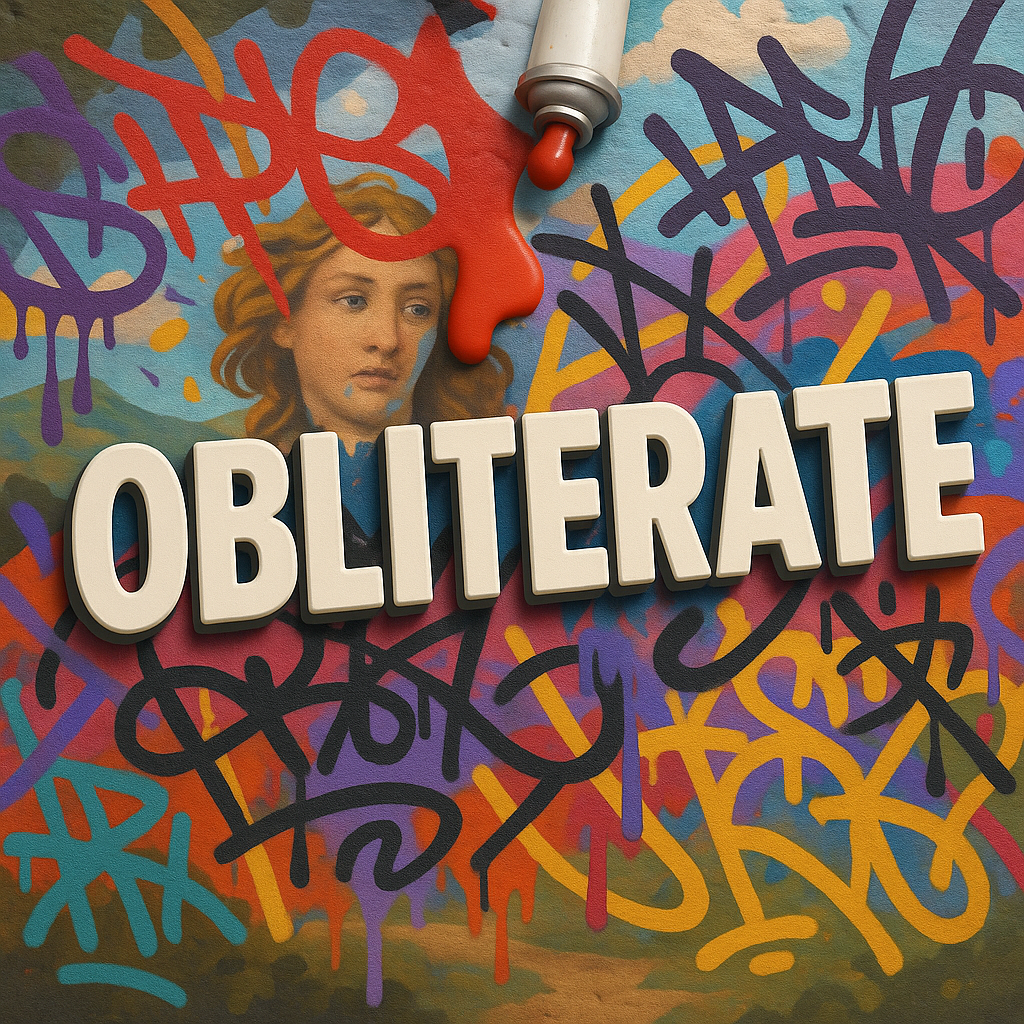Obliterate
Definition
The verb "obliterate" means (1) to destroy or remove all traces of something completely; (2) to erase or wipe out from memory or recognition; and (3) to render indistinct or undecipherable by obscuring or wearing away.
Parts of Speech
- Verb
Pronunciation
American English
- IPA: /əˈblɪtəreɪt/
- Respelling: uh-BLI-tuh-rate
British English
- IPA: /əˈblɪt(ə)reɪt/
- Respelling: uh-BLIT-uh-rate
Etymology
From Latin obliterare “to smear out, efface,” from ob- “against” + littera “letter.” Entered English in the early 17th century.
Derivatives
- Obliteration (noun)
- Obliterated (adjective)
- Obliterative (adjective)
Synonyms
- Destroy
- Erase
- Expunge
- Wipe out
Antonyms
- Create
- Preserve
- Maintain
- Reinstate
Usage
"Obliterate" appears in contexts of destruction, memory, and erosion. Examples: "The explosion obliterated the building," "Time obliterated her recollections," and "Acid rain obliterated the inscriptions."
Related Terms
- Erase: To remove completely.
- Destroy: To cause ruin or end existence.
- Efface: To wipe out or make invisible.
- Annihilate: To destroy utterly.
Detailed Definitions
Verb
- To destroy completely: Refers to eliminating all physical traces.
- Example: "The earthquake obliterated the coastal town."
- To erase from memory or recognition: Refers to wiping out recollection or record.
- Example: "Years of therapy could not completely obliterate the trauma."
- To render indistinct or undecipherable: Refers to obscuring or wearing away details.
- Example: "Graffiti had obliterated the original mural."
obliterate








